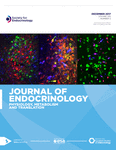Signaling regulation of fetoplacental angiogenesis
- Kai Wang and
- Jing Zheng1
- Clinical and Translational Research Center, Shanghai First Maternity and Infant Hospital, Tongji University School of Medicine, Shanghai 200040, China
1Perinatal Research Laboratories, Department of Obstetrics and Gynecology, University of Wisconsin, PAB1 Meriter Hospital, 202 South Park Street, Madison, Wisconsin 53715, USA
- (Correspondence should be addressed to J Zheng; Email: jzheng{at}wisc.edu)
Abstract
During normal pregnancy, dramatically increased placental blood flow is critical for fetal growth and survival as well as neonatal birth weights and survivability. This increased blood flow results from angiogenesis, vasodilatation, and vascular remodeling. Locally produced growth factors including fibroblast growth factor 2 (FGF2) and vascular endothelial growth factor A (VEGFA) are key regulators of placental endothelial functions including cell proliferation, migration, and vasodilatation. However, the precise signaling mechanisms underlying such regulation in fetoplacental endothelium are less well defined, specifically with regard to the interactions amongst protein kinases (PKs), protein phosphatase, and nitric oxide (NO). Recently, we and other researchers have obtained solid evidence showing that different signaling mechanisms participate in FGF2- and VEGFA-regulated fetoplacental endothelial cell proliferation and migration as well as NO production. This review will briefly summarize currently available data on signaling mediating fetoplacental angiogenesis with a specific emphasis on PKs, ERK1/2, AKT1, and p38 MAPK and protein phosphatases, PPP2 and PPP3.
- Received in final form 10 November 2011
- Accepted 21 November 2011
- Made available online as an Accepted Preprint 21 November 2011
- © 2012 Society for Endocrinology











